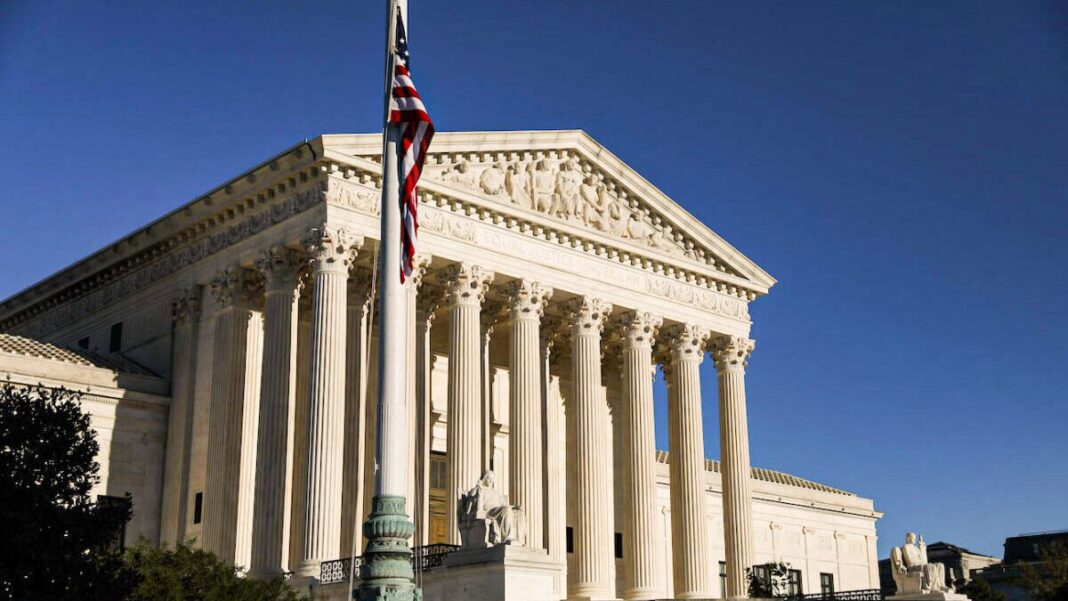The U.S. Supreme Court ruled 6–3 against North Carolina Republicans who argued that state legislatures have sweeping authority to make the rules for federal elections in the states without interference from the courts.
At issue is the once-obscure independent state legislature doctrine, under which Republicans argue that the Constitution has always directly authorized state legislatures alone to make rules for the conduct of federal elections in their respective states.
Democrats say this doctrine is a fringe conservative legal theory that could endanger voting rights, enable extreme partisan gerrymandering in the redistricting process, and cause upheaval in election administration.
Conservatives point to two key clauses in the U.S. Constitution that lay out the rules governing federal elections in the states.
The Elections Clause in Article 1 states, “The times, places and manner of holding elections for senators and representatives, shall be prescribed in each state by the legislature thereof.”
The Presidential Electors Clause in Article 2 gives each state the power to appoint presidential electors “in such manner as the legislature thereof may direct.”
But the Court rejected the doctrine, finding that the Elections Clause does not vest exclusive, independent authority in state legislatures to set the rules regarding federal elections.
The majority opinion (pdf) in Moore v. Harper (court file 21-1271) was written by Chief Justice John Roberts, a member of the court’s conservative bloc.
Conservative Justices Brett Kavanaugh and Amy Coney Barrett joined the majority opinion.
All three liberal justices—Sonia Sotomayor, Elena Kagan, and Ketanji Brown Jackson—also joined the opinion.
Conservative Justices Clarence Thomas and Neil Gorsuch dissented from the majority opinion. Justice Samuel Alito joined the dissenting opinion in part.
“State courts retain the authority to apply state constitutional restraints when legislatures act under the power conferred upon them by the Elections Clause,” Roberts wrote for the Court.







